#Post-Colonial Studies
Text
January Pick: Envisioning African Intersex

Continuing our trend of alternating between fiction and non-fiction, our pick for January is Envisioning African Intersex: Challenging Colonial and Racist Legacies in South African Medicine, by Amanda Lock Swarr.
This is an academic text, so we won't be reading the whole thing! To make it manageable, we will be reading the first three chapters:
The Introduction: Pathologizing Gender Binaries
Chapter 1: Colonial Observations and Fallacies
Chapter 2: Intersex in Four South African Racial Groups in Durban
To ensure everybody has access to the book, a pdf copy is available through the discord.
Content notice: this book will be talking about the history of intersexism, colonialism, and racism.
When we're meeting
We will be meeting to discuss the four chapters on Fri Jan 26, at:
- 12:30-14:00 Pacific (Vancouver, San Francisco, etc)
- 15:30-17:00 Eastern (Toronto, New York, etc)
- 21:30-23:00 Central European (Berlin, Paris, etc)
for more time zones see here
To join the discord: https://discord.gg/U8ZucKwGPK
Also see: our code of conduct
How much of the book do you need to read?
You don’t need to finish it participate! You are welcome to skim and/or skip chapters as desired.
Current & future book picks
If this isn’t in the cards for you, we’re reading YA portal fantasy Across the Green Grass Fields this month (December), and in February we will be reading the sci-fi short story collection Power To Yield.
We'll be reading another non-fiction selection in March, but it is not yet decided, so let us know in the Discord what would interest you!
#intersex book club#book picks#intersex books#queer theory#intersex studies#intersex#colonialism#post-colonial studies
56 notes
·
View notes
Text
Over and over I am reminded that institutionalized academia is a pillar of white supremacy. Expertise built on the exclusion of the colonized and disabled for the purpose of propagating colonial, eugenicist structures and rationalizations. Decolonial academia has become just an excuse to study us like bugs under a microscope and speak over us, rather than treat us as experts of our own reality and oppressions.
#academia#i think white people should shut the fuck up forever at this point#seriously we have heard the iterations of racism and ableism already. you really have nothing whatsoever to add to the conversation#white supremacy#gatekeeping#global south#racism#anti blackness#ableism#formal education#colonialism#colonization#western imperialism#imperial core#decolonization#decolonial studies#post-colonial studies#scholarship#white privilege#white people#white academia#knee of huss
15 notes
·
View notes
Text
Seeking Justice through Reparations for Colonialism Amid British Imperialism and Racial Inequality
The influence of colonialism extends across the globe, leaving devasting impacts and unresolved issues that resonate in former British territories. Today, nations once under British rule are asserting their independence and seeking justice for past wrongs. Jamaica and Barbados are confronting their colonial legacies by demanding reparations and severing ties with the British monarchy, a symbol of…
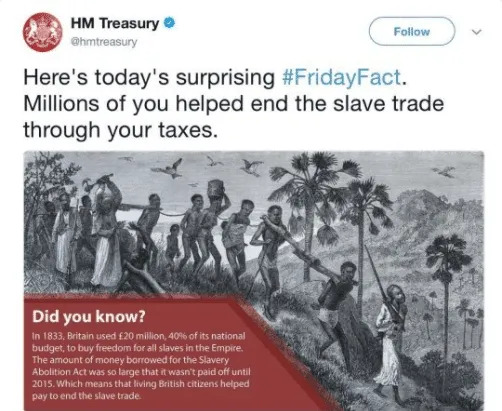
View On WordPress
1 note
·
View note
Text

#made this for Aly but its applicable for all the mutuals so i had to post#putting my mutuals in a petri dish so I can study them#biology#biology memes#culture#petri dish#microbiology#bacteria#mold#mold colonies#colonies#agar plates#agar#mold growth#fungi#fungal colonies#microbiology memes#microorganisms#yeast#agar gel#science#science memes#fungus#mycology#wild fungi#mushrooms#mushroom
15K notes
·
View notes
Text
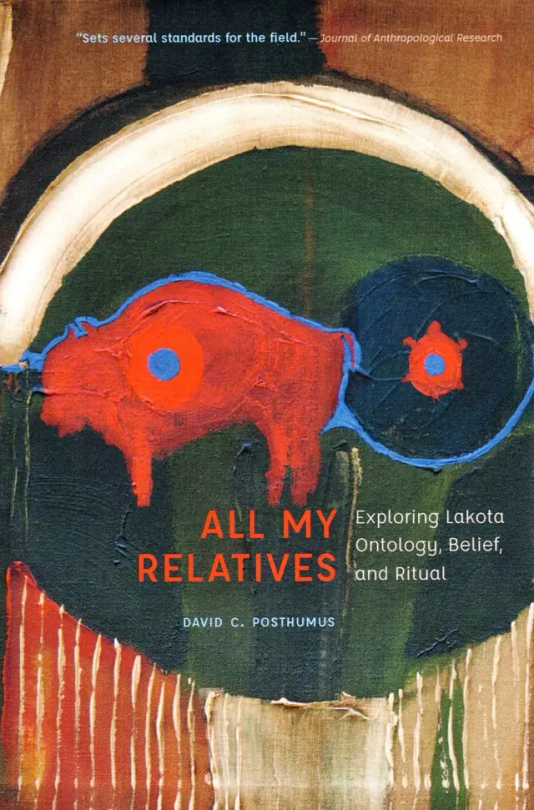

All my relatives: Exploring Lakota ontology, belief, and ritual. Posthumus DC (2022)
This is a book all about Lakota traditional beliefs and therefore has a lot of information connected to Mitakuye Oyasin. “At the heart of both Lakota religious continuity and innovation is an underlying animist ontological orientation, a basic way of seeing, understanding, and being in the world that extends personhood— in the form of a soul or spirit— to nonhuman life- forms.” This is expressed with ‘Mitakuye Oyasin’ –meaning ‘all my relatives’ or ‘we are all related’, which refers not only to human kinship but also to the relationship shared by all life-forms, both human and nonhuman, and the reciprocal obligations, responsibilities, and mutual respect that naturally extend from it” (14).
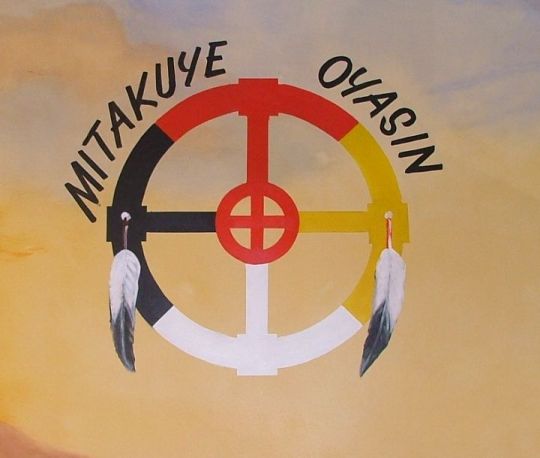
This repeats much of the ideas from similar definitions: belief in the connection between all life, relationships, the power the phrase has. It also gives a lot of words to help define these beliefs in academic language. Another important thing to point out is the way mitakuye oyasin is recognized as being part of Lakota innovation; my goal here is to use mitakuye oyasin to an innovation of queer ecology–hopefully add to the conversation.
“The normative cultural values encompassed by mitákuye oyásʾį are the very foundation of kinship, relational ontology, and the overarching interspecies collective, of which humans are only one hoop, one oyáte ‘people, nation, tribe’, in the company of many others. The key constituents of this animist ontology and worldview, of mitákuye oyásʾį, are persons, a category that extends beyond human beings to nonhuman or other- than- human persons. [...] Importantly, the Lakota worldview sees humans as the least knowledgeable and powerful beings, requiring the most aid and pity, upending the common Western biblical assumption that humans have dominion to rule over all other life- forms and subdue the earth (see V. Deloria 1999, 50; 2009, 99– 100). For the Lakotas, the seed of all life is wakʿą ‘sacrality, mystery, divinity’; ́ hence all life- forms share a generalized interiority, whether human or nonhuman.”
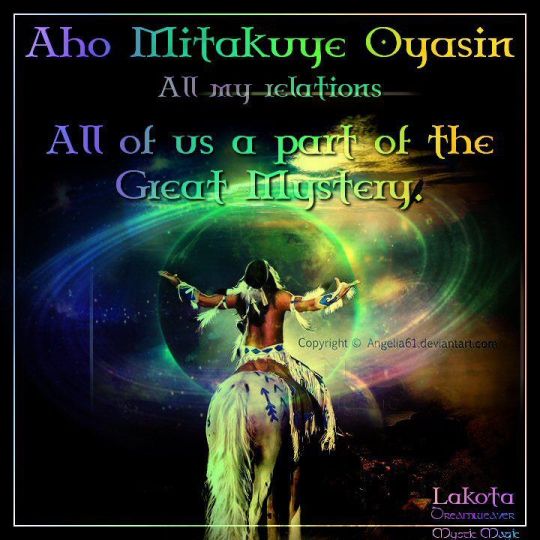
This is important information to support my argument. Queer ecology is very critical of Western beliefs and dichotomies that separate humans from nature and thereby present mankind as the ultimate lifeform (anthropocentrism). There are many essays and articles that examine the influence Christianity has had on the colonialist project (Gaard is the first that comes to mind). The Lakota worldview of being the ‘younger siblings’ of creation are supported by science in that ‘humans’ as a 'species' haven’t existed all that long in comparison to other 'species' and like many indigenous cultures, Lakota people knew the key to knowing nature was to learn from the world around us, as the author later confirms:
“Deloria explains that “the oldest traditions say that humans learned politeness and courtesy from the animals. . . . Generations of elders had already observed the behavior of birds . . . and decided that emulating them was the proper way for humans to act” (V. Deloria 2009, 123). Standing Bear (2006a, 56) substantiates this, writing, “The Lakota enjoyed his association with the animal world. For centuries he derived nothing but good from animal creatures. From them were learned lessons in industry, fidelity, and many virtues and much knowledge.” (50-51)
In the author’s footnotes is Vine Deloria’s examination of mitakuye oyasin that is, I feel, a great support of my claim:
“Vine Deloria refers to mitákuye oyásʾį as the ‘Indian principle of interpretation/observation,’ calling it “a practical methodological tool for investigating the natural world and drawing conclusions about it that can serve as guides for understanding nature and living comfortably within it. . . . We observe the natural world by looking for relationships between various things in it. . . . This concept is simply the relativity concept as applied to a universe that people experience as alive and not as dead or inert” (1999, 34). (Posthumus 2022 p219 f)
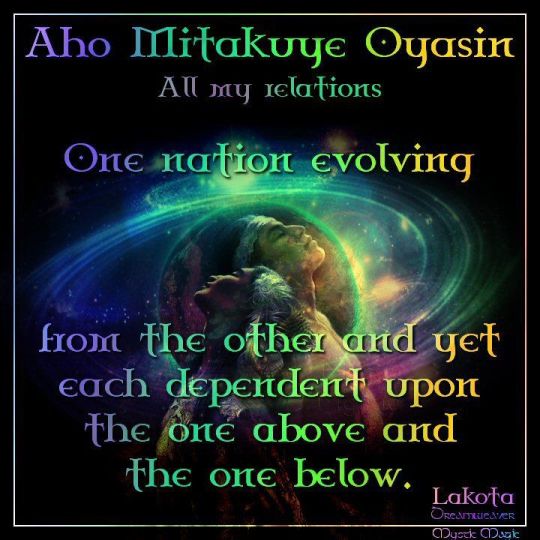
Queer ecology’s goal in many ways is to critique the ways the Western scientific paradigm has created inequity. Many are seemingly searching for solutions and answers to the problems that have been perpetuated by the colonial empire, supported as it is by western science.
While we must always, always be careful of appropriation and misappropriation–I contend that the solutions are not ones that need to be ‘discovered’ or solved in the way that Western science is so often searching for–advancement, the future…but rather, the answers are in what has always been there…and it’s simply a matter of observation.
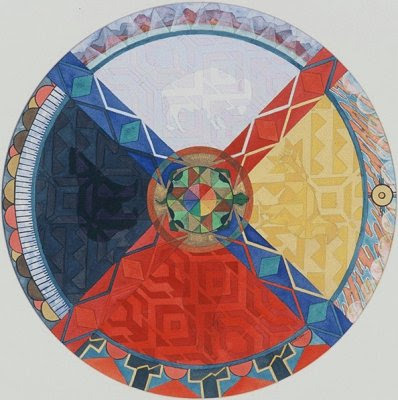
#queer ecology#mitakuye oyasin#queer theory#ecofeminism#critical ecology#colonialism#all my relatives#lakota#indigenous studies#postcolonial theory#ecology#science#traditional ecological knowledge#queering ecology#ecosystems#environment#social ecology#long post
22 notes
·
View notes
Text
While it is true to say that exile is the condition that characterizes the intellectual as someone who stands as a marginal figure outside the comforts of privilege, power, being-at-homeness (so to speak), it is also very important that the condition carries with it certain rewards and, yes, even privileges [...] One of course is the pleasure of being surprised, of never taking anything for granted, of learning to make do in circumstances of shaky instability that would confound or terrify most people [...] A second advantage is that you tend to see things not simply as they are, but as they have come to be that way. Look at situations as contingent, not as inevitable, look at them as the result of a series of historical choices made by men and women, as facts of society made by human beings, and not as natural or god-given, therefore unchangeable, permanent, irreversible.
— Edward W. Said, Representations of the Intellectual.
Follow Diary of a Philosopher for more quotes!
#Edward W. Said#Representations of the Intellectual#chaotic academia#dark academia#book quotes#academia#quote#quotes#gradblr#studyblr#post colonial studies#colonialism#imperialism#decolonization#colonization#philosophy quotes#philosophy
21 notes
·
View notes
Text
im in a local leftist signal group for tracking neo nazi activity which includes documenting and taking down posters and stickers. and recently multiple people have been reporting free palestine stickers in that group. as in those being on the same level as stickers propagating the deportation of immigrants. i cannot tell yall how angry i am lately
#or my post colonial studies professor being like free palestine negates isreals right to exist#wie fucking verblendet deutsche linke sind ist so abartig ekelhaft
14 notes
·
View notes
Text
more of u .. need to let scottish obi-wan into ur hearts ....
#obi-wan kenobi#u dont have to change his whole character ... but wouldn't it be fun if there was a scottish accent under all there ....#(guy who studies post-colonialism voice) what if there was the post-colonialism allegories. in the blorbo
7 notes
·
View notes
Note
Did you know that cottagecore has been known to have ties to fascism and colonialism?
this was the link added in a separate ask, and it is a very good conversation so I'm putting at the top here!!
https://www.tumblr.com/solarpunkcast/189377668416/time-to-stop-tagging-cottagecore-alongside
Yes I am very aware of this problem. While I think it's a problem to fix, I don't think it's worth abandoning the entire thing.
To be brief though if you can't read the linked think yourself, cottagecore, and trad like sub cultures always have ideas of colonialism, classism, ableism, racism, sexism baked into them. And in general just a very western perspective to things. So I totally understand why this is gross to ppl who are looking to escape those systems through solarpunk. These points are the most important part to this convo, I think these points should be on everyone's mind when interacting with almost any aesthetic. We as a solarpunk community aren't safe from Nazi shit. we aren't safe from our bigotry seeping in. And if anything I post is either tied to or supporting this you let me know I'll sort it out (with violence and arson where needed)
I think cottagecore in particular is a … weird one. A lot of its bones of cottagecore are related to why ppl like Solarpunk. But not just that. It was born in a time of isolation, of the government abandoning it's citizens during a plague, of burn out over ungrateful and exploitive jobs. Ppl where rejecting the American Dream in mass, questioning the appeal of city and career. Instead they wanted so badly to make clothes for their friends, to read books on rainy days and make soup, to have control over their food supply. I know many ppl in solarpunk who started in that initial trend of cottagecore and then realized they didn't have to day dream about a cottage lifestyle that half of them couldn't even live bc of accessability. They could build it where they were.
For me the reason is bc cottagecore is this gutteral reaction. There is something WRONG with society, and our natural instinct, particularly when burnt out and too tired to even dream of a better place, we think of running away. Run away from war, from environmental disaster, from the bigots on your doorstep that want you dead. Run. it's the only option!!
But then they tend to create small social circles through crafts and recipes, jokes about coliving with friends in the city, and somewhere in there they realize ppl need each other. Slowly the mentality goes from a flight response to a "I'm going to just do what I want in the place I already live" and mutual aid and common spaces form almost on accident.
But bc of the base appeal, just like homemaking circles, the community that doesn't examines things further tend to breed this Colonialistic, ablest, sexist culture of farm life being the only answer. But I don't blame cottagecore for this if we don't give them any other options to remove the bigotry but keep the helpful, kind and sweet parts.
I like to think about it like Riot grrrl, a group with good intents that didn't dissect just ENOUGH of the problem to remove the racism from their ideals. But there where still parts worth saving, parts worth reusing and refining and protecting. There were ppl in these circles that took it to the next step of equality, that handled that problem of solidarity and inclusion. But many stayed within the Riot grrl circles to refine this rather then abandon it in its entirety. I think it's worth letting cottage core go through the process of letting them know better is possible even within their aesthic niche.
Just know I'm not turning my eye from this, I won't ever turn my eye from the truth. I know it's a festering wound that could kill off any good intent it had. I just think it should be given the chance to realize the overlap we have.
#besties#Solarpunk#long post#cottagecore#discourse#I guess#rural living#sorry I've been studying cottagecore in an anthropologist way since I first saw it trending#riot grrl#ableism#colonialism#anarchist#chats
33 notes
·
View notes
Text
Debility is thus a crucial complication of the neoliberal transit of disability rights. Debility addresses injury and bodily exclusion that are endemic rather than epidemic or exceptional, and reflects a need for rethinking overarching structures of working, schooling, and living rather than relying on rights frames to provide accommodationist solutions. Challenging liberal disability rights frames, debility not only elucidates what is left out of disability imaginaries and rights politics; it also illuminates the constitutive absences necessary for capacitating discourses of disability empowerment, pride, visibility, and inclusion to take shape. Thus, I argue, disability and debility are not at odds with each other. Rather, they are necessary supplements in an economy of injury that claims and promotes disability empowerment at the same time that it maintains the precarity of certain bodies and populations precisely through making them available for maiming.
In a context whereby four-fifths of the world’s people with disabilities are located in what was once hailed as the “global south,” liberal interventions are invariably infused with certitude that disability should be reclaimed as a valuable difference— the difference of the Other— through rights, visibility, and empowerment discourses— rather than addressing how much debilitation is caused by global injustice and the war machines of colonialism, occupation, and U.S. imperialism. Assemblages of disability, capacity, and debility are elements of the biopolitical control of populations that foreground risk, prognosis, life chances, settler colonialism, war impairment, and capitalist exploitation. My analysis centralizes disability rights as a capacitating frame that recognizes some disabilities at the expense of other disabilities that do not fit the respectability and empowerment models of disability progress— what David Mitchell and Sharon Snyder term the “biopolitics of disability.” But the normalization of disability as an empowered status purportedly recognized by the state is not contradicted by, but rather is produced through, the creation and sustaining of debilitation on a mass scale. Debilitation is not a by-product of the operation of biopolitics but an intended result, functioning both as a disruption of the non- disabled/disabled binary—as an in-between space—and as a supplement to disability, that which shadows and often overlaps with disability. I therefore do not offer debility as an identity; it is instead a form of massification. My alternative conceptualization of the biopolitics of debilitation not only refers to the remaindering of what the liberal inclusion of disability fails to fully embrace, but also points to the forms of violent debilitation of those whose inevitable injuring is assumed by racial capitalism. I therefore seek to connect disability, usually routed through a conceptual frame of identification, and debilitation, a practice of rendering populations available for statistically likely injury.
Jasbir Puar, from the preface to The Right to Maim: Debility, Capacity, Disability (2017) [The link takes you to the press site where you can purchase the book, but it will also allow you to access the introduction as a PDF.]
#Jasbir Puar#readings#critical disability studies#disability studies#capitalism#imperialism#settler colonialism#debility#neoliberalism#this is very difficult to read but I will post excerpts as I understand them#sorry had to repost because of accidental deletion
9 notes
·
View notes
Text
March pick: Envisioning African Intersex pt 2
Continuing our trend of alternating between fiction and non-fiction, our pick for March is the second half of Envisioning African Intersex: Challenging Colonial and Racist Legacies in South African Medicine, by Amanda Lock Swarr.

This is an academic text, so we won't be reading the whole thing! The book is split into two parts, one on colonial history and one on resisting colonial intersexism. To make things manageable we will be reading only the second part! There are three substantive chapters and an epilogue:
Chapter 3: Defying Medical Violence and Social Death, Sally Gross and the Inception of South African Intersex Activism
Chapter 4: #HandsOffCaster: Caster Semenya's Refusals and the Decolonization of Gender Testing
Chapter 5: Toward an "African Intersex Reference of Intelligence": Directions in Intersex Organizing
Epilogue: Reframing Visions of South African Intersex
Like most academic books, each chapter is a self-contained unit. You can pick and choose which chapters to read, and read them in whichever order you choose. (Starting with the epilogue is a common tactic!)
To ensure everybody has access to the book, a pdf copy is available through the discord.
Content notice: as you might expect, this book will discuss intersexism, colonialism, and racism.
When we're meeting
We will be meeting to discuss the four chapters on Fri Mar 29, at:
- 12:30-14:00 Pacific (Vancouver, San Francisco, etc)
- 15:30-17:00 Eastern (Toronto, New York, etc)
- 21:30-23:00 Central European (Berlin, Paris, etc)
for more time zones see here
To join the discord: https://discord.gg/U8ZucKwGPK
Also see: our code of conduct
How much of the book do you need to read?
You don’t need to finish all four chapters to participate! You are welcome to skim and/or skip chapters as desired.
Current & future book picks
If this isn’t in the cards for you, we’re reading sci-fi short story collection The Trans Space Octopus Congregation for April!
#intersex book club#book picks#intersex books#intersex studies#queer theory#gender studies#postcolonialism#postcolonial literature#post colonial studies
3 notes
·
View notes
Text
It pisses me off so much that Mary Seacole isn't on the GCSE history Medicine Through Time course, and Florence Nightingale is.
#this post is inspired by Checking Out Me History#thank you John Agard#but seriously#the course is already full of white men#and the only two women we learn about are Florence Nightingale and Rosalind Franklin#but Mary Seacole is seemingly a perfect fit for the course???#she helped the field of medicine SO MUCH#and also had way more practical experience than nightingale#gcses#gcse history#gcse student#actually while we're on the subject imma say it: the entire cold war topic feels very... propaganda-y#i don't really have the political knowledge to get into it#but the course LOVES to emphasis what bad people Stalin; Khrushchev and Brezhnev were#while ignoring... everything about jfk and reagan and literally all the american presidents we look at on the course#ALSO the Elizabeth course seems to glamourise colonialism a bit too much for my liking#as well as glorifying francis drake#ironically the only one i study i don't find a problem with is the weimar and nazi germany course
3 notes
·
View notes
Text
// Big fan of the Radio Demon Race Theory that goes on in this fandom but one thing I don't see talked about is how having a biracial/multiracial background -> looking racially ambiguous depending on the context and the STUPID ASS QUESTIONS & COMMENTS you get about it!! LMAO
#// some of y'all never had people ask 'WHAT ARE YOU' or ACCOST YOU ON THE SIDEWALK to ask your 'nationality' or get called 'exotic' like a#FUCKING ANIMAL!! LMAO. People really ask your nationality when they mean 'why aren't you white' or 'what are you' and then get MAD#if you answer with 'I'm a US Citizen.' Are you the department of homeland security? fuck you mean what is my nationality.#that's the study break post.#mun post.#man y'all know Alexa has had to field some DUMB ASS QUESTIONS both as a biracial creole person and a sometimes racially ambiguous person#imagine trying to explain what creole heritage is to a dumbass. like how one that one annoying producer on LHH went the entire season#struggling to understand the concept of an afrolatina. he was still beefing with the afrolatina singer at the season reunion bc he was#convinced she made it up or something. y'all know DAMN WELL alexa got some dumb ass questions like 'why do you speak french if you're#american' trying to explain that Louisiana was a French colony.#'yeah but why would your maternal side speak french if theyre african. wouldnt they speak african.' I'm not exaggerating this is the average#level of stupid that exists and it's not uncommon. I cannot begin to tell you how stupid people are.
3 notes
·
View notes
Text
The Trantigone Hub of my Writing
Hiiiii! My name is Antigone,I'm 20, I use They/She pronouns, I'm a researcher and Marxist Historian with an interest in (among many things) Gender/Sexuality/Women's Studies, Post-Colonial Studies, Pedagogical Methods at the Collegiate Level, and Disability Studies (specifically the agency of people with developmental disabilities like Down Syndrome).
I'm also Trans and a really weird lesbian so there's that.
I'm a full-time student, but I'm hoping to use this blog to connect with other like-minded people and have a space to post little bits and bobs I've written about my interests!
3 notes
·
View notes
Text
Every single empire in its official discourse has said that it is not like all the others, that its circumstances are special, that it has a mission to enlighten, civilize, bring order and democracy, and that it uses force only as a last resort. And, sadder still, there always is a chorus of willing intellectuals to say calming words about benign or altruistic empires, as if one shouldn't trust the evidence of one's eyes watching the destruction and the misery and death brought by the latest mission civilizatrice.
— Edward W. Said, Orientalism.
Follow Diary of a Philosopher for more quotes!
#Culture and Imperialism#Edward Said#book quotes#imperialism#colonialism#quote#quotes#dark academia#non fiction quote#philosophy quotes#gradblr#academia#studyblr#academia aesthetic#post colonialism#post colonial studies#orientalism
12 notes
·
View notes
Text
Simon Sebaq Montefiore in The Atlantic. The Decolonization Narrative Is Dangerous and False
It does not accurately describe either the foundation of Israel or the tragedy of the Palestinians.
Simon Sebaq Montefiore is an intimate friend of King Charles III and Queen Camilla of England.
King Charles is in Kenya not apologizing for colonial era suffering.
I haven't read much from The Atlantic since Laurene Powell Jobs bought it. I am a worker of the status that takes orders and does not give them. I'm not the target audience for The Atlantic.
I suppose that Montifiore's proposal to boycott films who feature people who have signed on to political perspectives he disagrees with could conceivably be directed at folks of humble means. But let's face it, his proposal for philanthropists to defund humanitarian organizations and universities is squarely directed towards Laurene Powell Jobs's target audience for The Atlantic.
This is why the article is important: "thought leaders" think like Simon Sebaq Montefiore.
#manufacturing consent#american foreign policy#colonialism#post colonilaism#migrant and displacement studies
2 notes
·
View notes